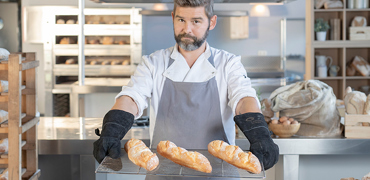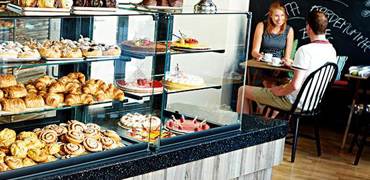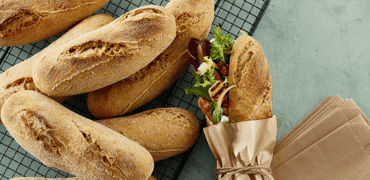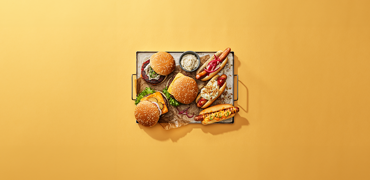Lantmännen Unibake bakeries optimize plastic bread bags and reduce CO2 emissions by several tonnes
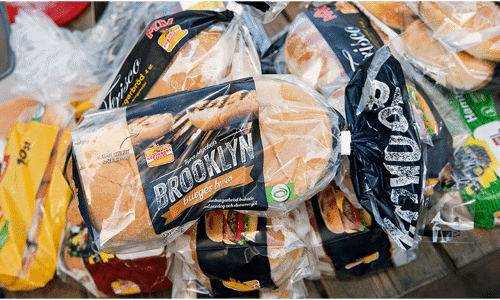
Lantmännen Unibake is pursuing a target to reduce overall plastics consumption by 10% in 2022. To reach this target Unibake bakeries are downgauging their packaging by decreasing the thickness of the film and the size of the bags. Great results have already been achieved in Denmark, Norway and Sweden.
Lantmännen Unibake is pursuing a target to reduce overall plastics consumption by 10% in 2022. To reach this target Unibake bakeries are downgauging their packaging by decreasing the thickness of the film and the size of the bags. Great results have already been achieved in Denmark, Norway and Sweden.
In all fairness to plastic, it’s better than its reputation. At least when it comes to plastic bags used as a barrier for keeping bread safe and fresh for several days.
Without plastic tonnes of fresh bread would go to waste every day. Plastic protects a bread product from growth of micro-organisms, drying and staling and extends the food's shelf life. The most important role of plastic packaging is therefore to protect the bread product and prevent food waste – which is a great burden for the climate.
Smaller, thinner and recyclable
But despite plastics unique qualities as a packaging material in the food industry, using an unnecessary amount of plastic for packaging is a waste of resources across the full value chain.
“In Unibake we commit ourselves to reduce our overall plastics consumption by 10% in 2022 by optimizing size and thickness of the bags,” says Erik Mansner, Global Category Lead Buyer at Lantmännen Unibake.
“Making 100% of all our packaging materials recyclable by using monomaterials is also at the top of our sustainability agenda, and we aim to reach this target in 2022. For minimal climate impact, a packaging should of course be used as many times as possible, for instance in the household for storage purposes. But when the packaging is no longer usable, it should be able to be recycled so it can constitute material for new plastic packaging.”
Reducing CO2 emissions
In Denmark, Lantmännen Unibake’s Schulstad bakery has reduced material consumption on more than 50 million plastic bread bags resulting in material savings of 20%. That translates into 10 million fewer plastic bread bags being produced. And in Lantmännen Unibake’s bakery in Holstebro they recently replaced the multi material foil (PE/PP) with a new mono material foil (PE/PE). This means that the new foil is 100% recyclable.
In Lantmännen Unibake Sweden they optimized the consumer packaging for their brand Korvbrödsbagarn. The new packaging is 100% recyclable, and the size of the bag is reduced by 21%. Reducing the size of this particular bag means that the use of plastic is reduced by 60 tonnes per year, resulting in a reduction in CO2 emissions by 121 tonnes per year.
Finally, Lantmännen Unibake’s bakery in Langhus, Norway has downgauged the packaging by 15% for hot dog rolls and burger buns. By producing 17 fewer tonnes of plastic every year the bakery reduces CO2 emissions by 41 tonnes per year.






